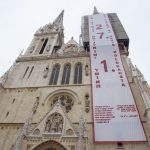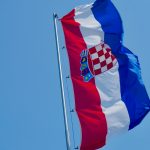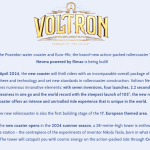ZAGREB, November 21, 2018 – The Office of Ombudsman has warned in an analysis that attempts to downplay the crimes committed during the 1941-1945 Independent State of Croatia (NDH) led by the Ustasha regime undermine the fundamental values of the Constitution, while failure to respond to those attempts of WWII historical revisionism creates space for hatred.
“Denying the character of the NDH and the extent of the crimes committed by the Ustasha regime, posting (NDH) symbols in public space or using the syntagms showing sympathy for the regime have become so frequent in the Croatian society that they seem to be almost tacitly accepted,” the ombudswoman Lora Vidović said in the analysis published on the website of the Office of Ombudsman.
Vidović calls for education and for fostering tolerance and culture of historical memory among school-age children and in this context mentions findings of a September 2015 survey conducted among senior students of secondary schools that showed that a half of respondents were not sure if the NDH was a pro-Fascist state.
Vidović recalls that European Commission against Racism and Intolerance (ECRI) recommended in a report this year that “the (Croatian) authorities should introduce compulsory human rights education as part of civic education into all school curricula, especially as regards the right to equality and the prohibition of discrimination.”
The ombudswoman calls on all stakeholders in the society to play an important role in permanent response to attempts to downplay the nature of the Ustasha state so as to make it impossible for such phenomena to participate in creating public opinions. She insists that it is full responsibility of the authorities to ensure the compliance with the Constitution and implementation of the laws so as to counter the phenomena “that symbolically or directly support or glorify the NDH and deny or downplay the crimes that regime had produced.”
Vidović calls for putting an emphasis on the fact that the NDH was in contravention with the present-day Croatia.
In 2005, the Croatian Parliament adopted the declaration on anti-Fascism reaffirming Croatia’s roots in and commitment to anti-Fascism and democracy and calling for nurturing anti-Fascist values, the Ombuswoman recalls.
She goes on to say that it is necessary to honour the requests of the representatives of the Roma, Serb and Jewish communities and anti-Fascist associations and create prerequisites for organising a single commemoration for victims of the Ustasha regime at the Jasenovac Memorial Centre, thus showing solidarity for the communities of the victims of those war atrocities.
Attempts to deny the crimes committed during the NDH regime and denying their extent are actually attempts to deny the past marked by hatred and violence against Roma, Serbs and Jews and opponents of the Ustasha regime, she says adding that attempts to deny crimes actually encourage hate speech that could lead to the violence against the members of the above-mentioned groups. In that way, the continuity of hatred is being fostered, which harms the values of equality, the rule of law and human rights on which the Croatian Constitution is based, Vidović writes in the conclusion of her analysis.
For more on the dark days of Croatia during the Second World War, click here.








